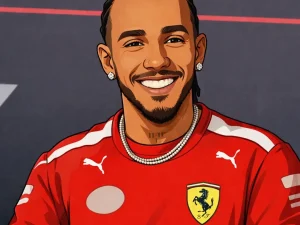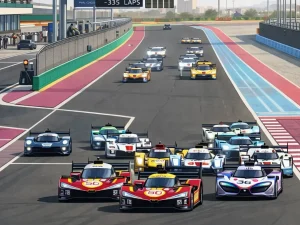Ben Sulayem sounds alarm on more F1 Sprints: “We have to ask if this is good for the teams”
FIA president Mohammed Ben Sulayem isn’t sold on Formula 1’s growing appetite for more Sprint weekends. In the wake of the Azerbaijan Grand Prix, he warned that doubling the number of Sprints would load yet more pressure onto traveling staff and ratchet up the administrative workload for the federation’s officials.
His caution arrives as F1 CEO Stefano Domenicali continues to float format tweaks aimed at keeping the show fresh — including a possible expansion of Sprints beyond the current six weekends. The 2026 Sprint slate has already been set; the talk now is about pushing the count higher from 2027.
That idea has landed with predictable turbulence in the paddock. Some drivers see a red flag rather than a green light. Esteban Ocon has called the ramp-up “artificial,” while rookies like Gabriel Bortoleto have voiced a different worry: with fewer practice laps and more high-stakes sessions, teams might think twice about blooding new talent.
Fans are hardly unanimous either. There’s a crowd that loves getting meaningful action on Fridays and Saturdays — if you’ve paid for a weekend ticket, a Sprint gives you something real to watch. But another slice of the audience argues Sprints flatten the tactical layers that make a Grand Prix breathe, turning Saturday into a quickfire sprint to nowhere.
Ben Sulayem’s point is more nuts-and-bolts. “I also always think about the additional burden this places on our staff,” he told Viaplay. An FIA race weekend isn’t just waving flags and handing out penalties. It’s scrutineering every car, checking wing angles and plank wear, policing curfews and parc fermé, managing penalties consistently, and ensuring drivers hit their media marks. Now add extra competitive sessions, compress the practice window, and the load multiplies.
Sprint formats complicate the rhythm of the weekend. Parc fermé arrives earlier and more often — first between Sprint qualifying and the Sprint, then again from Grand Prix qualifying until lights out on Sunday — leaving less room to tune a tricky car and more boxes for the FIA to tick. More sessions that matter also mean more chances for rule breaches and more incidents to investigate, with the same finite group of officials working long hours across a calendar that’s already at its 24-race limit.
“They already travel a lot,” Ben Sulayem said. “We have to ask ourselves whether this is a good thing for the teams.” That’s the other side of the coin. The number of on-track sessions might be similar on paper, but the intensity of a Sprint weekend is unmistakably higher. With practice stripped back, mistakes get costly, and the margin for recovery shrinks. It feels like more, because it is.
Crucially, Domenicali’s comments aren’t policy. Any shift in the Sprint count has to go through the usual F1 governance: a proposal to the F1 Commission, and then ratification by the FIA World Motor Sport Council. That process gives teams, drivers, and the governing body their say — precisely the conversation Ben Sulayem wants before the sport commits to a heavier Sprint footprint.
There’s a balance to strike here. Sprints deliver bite-sized jeopardy and help broadcasters and promoters package a premium weekend. But sustainability isn’t only about freight or fuel; it’s also about people. If the paddock’s bandwidth is already close to maxed out, the answer may not be “more,” but “better.” Fine-tune the product, don’t overcook it.
The Sprint debate isn’t going away. If anything, it’ll intensify as 2026 looms and the power-unit era flips. For now, the FIA president has planted a flag: make sure the spectacle doesn’t outrun the sport’s capacity to run it.








